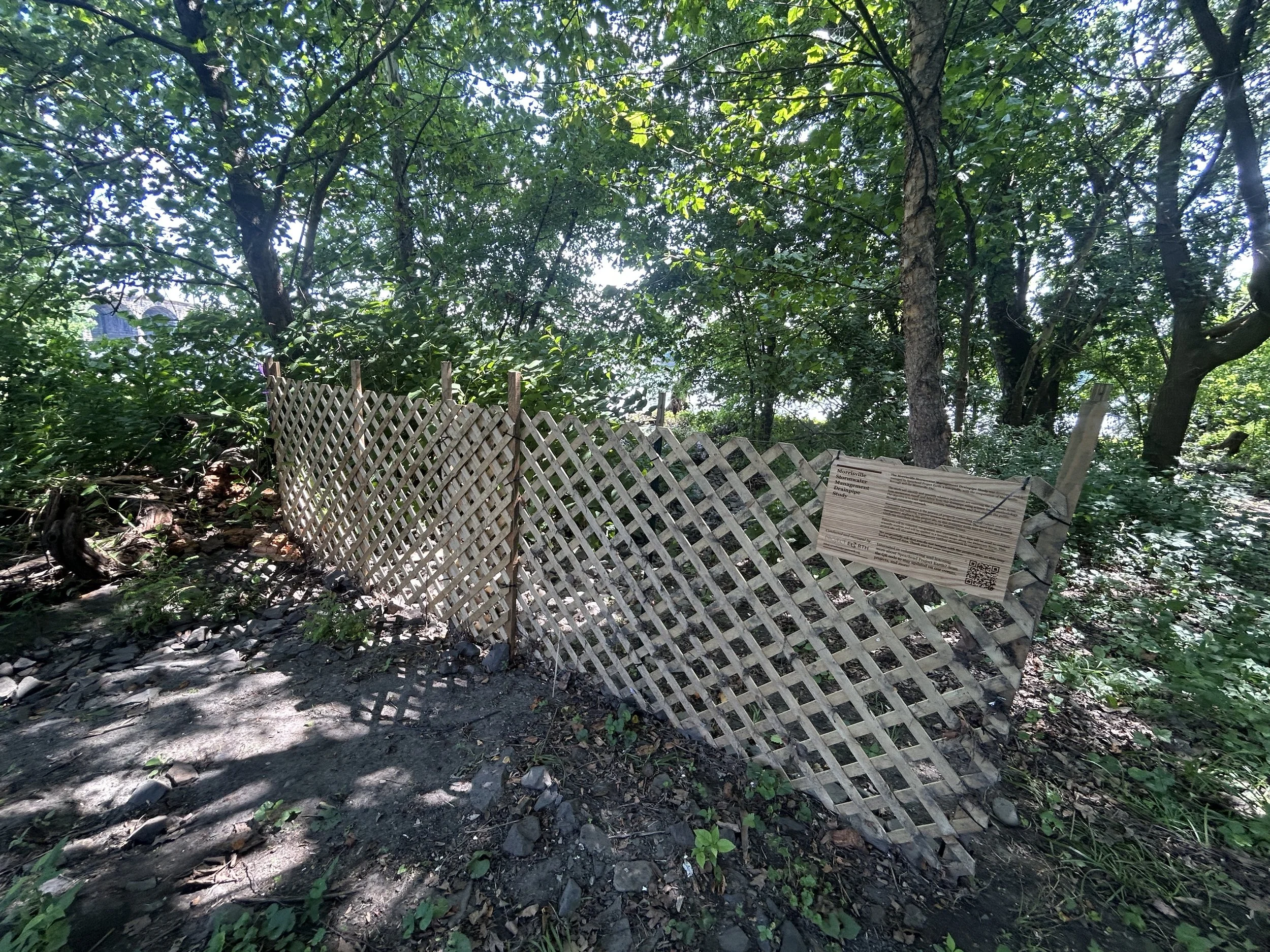
Morrisville Stormwater Management Drainpipe Study
The Morrisville Stormwater Management Drainpipe Study investigates pollution caused by stormwater runoff entering the Delaware River through a storm drain near a public trailhead in Morrisville Borough. The study aims to understand and reduce debris flow from this active drain, contributing to environmental protection efforts.
Study Background and Methodology
Observations in 2024 documented consistent discharge of land-based waste from the drain after rainfall. To address this, Spearhead Project Earth’s researchers planned a low-cost monitoring system for implementation in July 2025. A simple waste capture system was designed and implemented to collect debris efficiently over a six-month period. Spearhead Project Earth’s staff and volunteers will regularly gather and categorize waste, analyze data, and identify upstream pollution sources. (continue below)
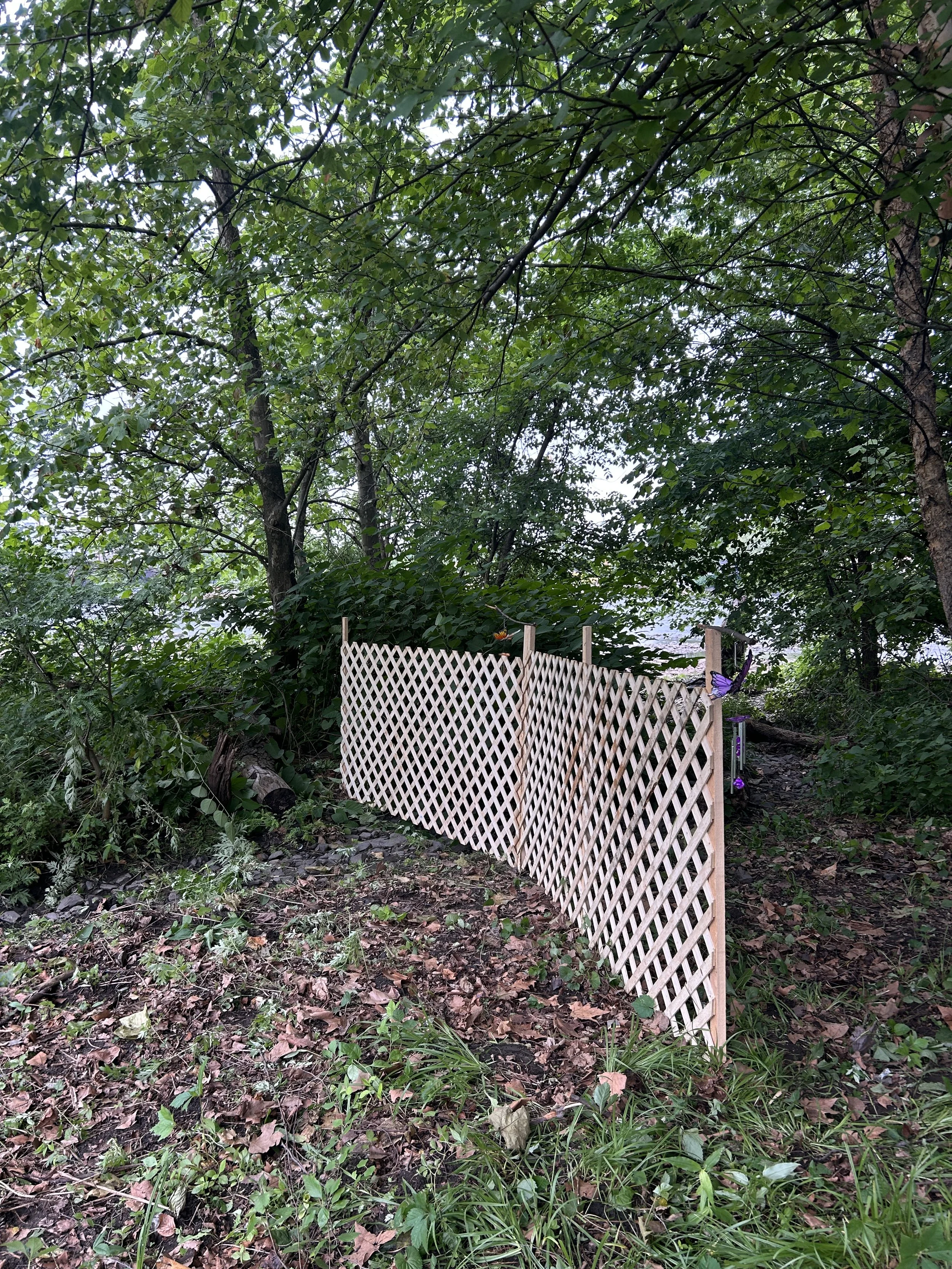

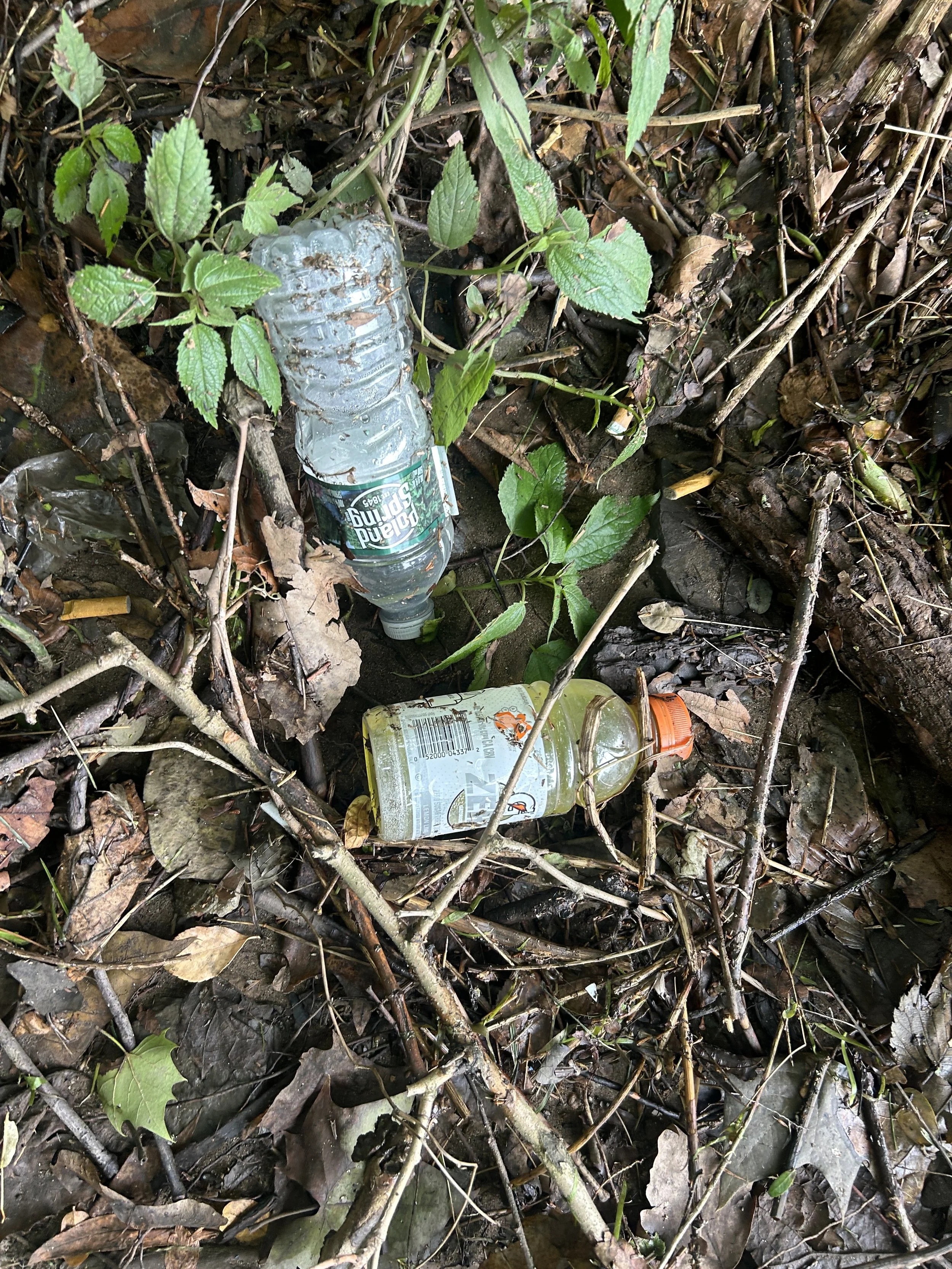
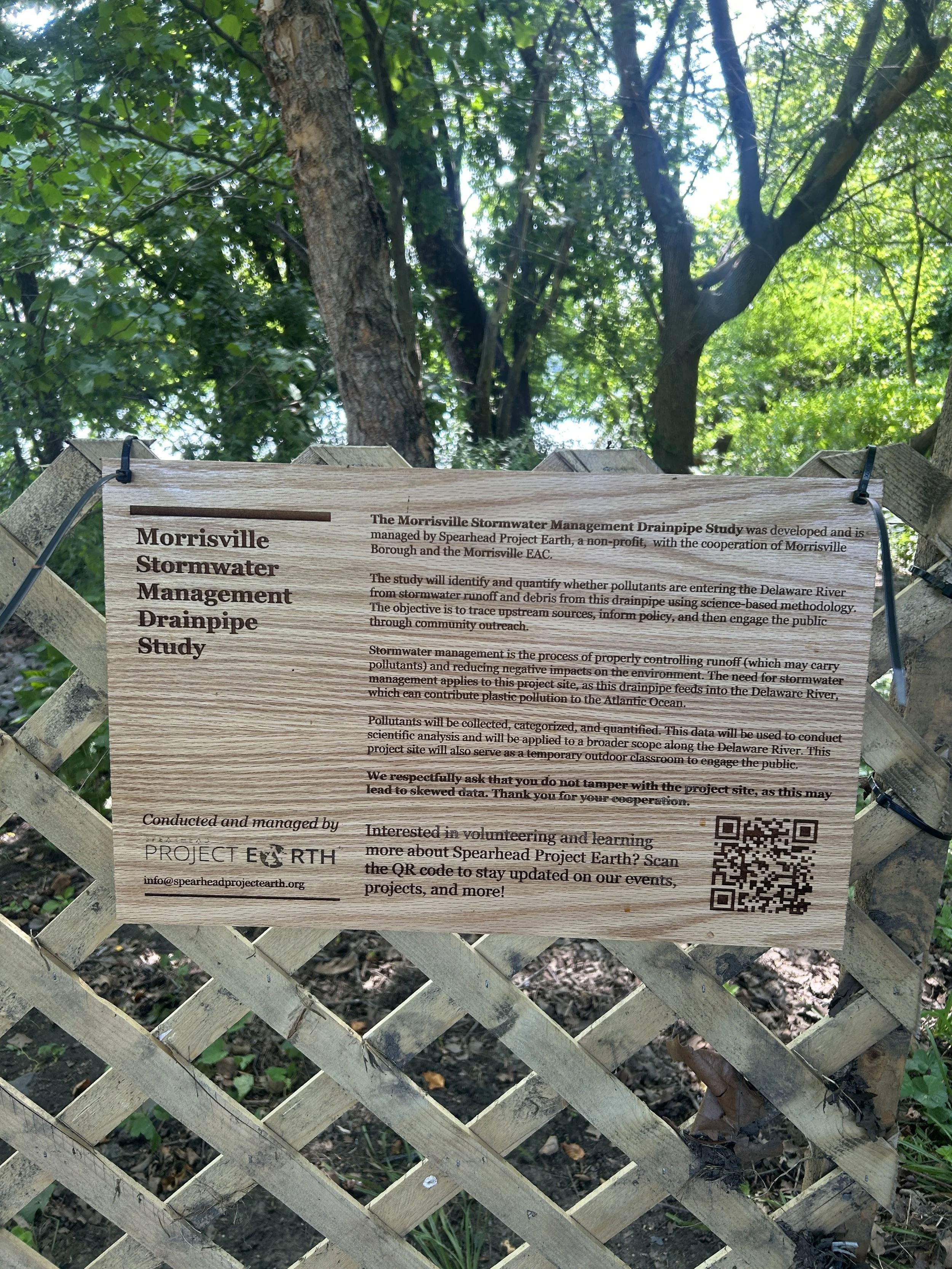
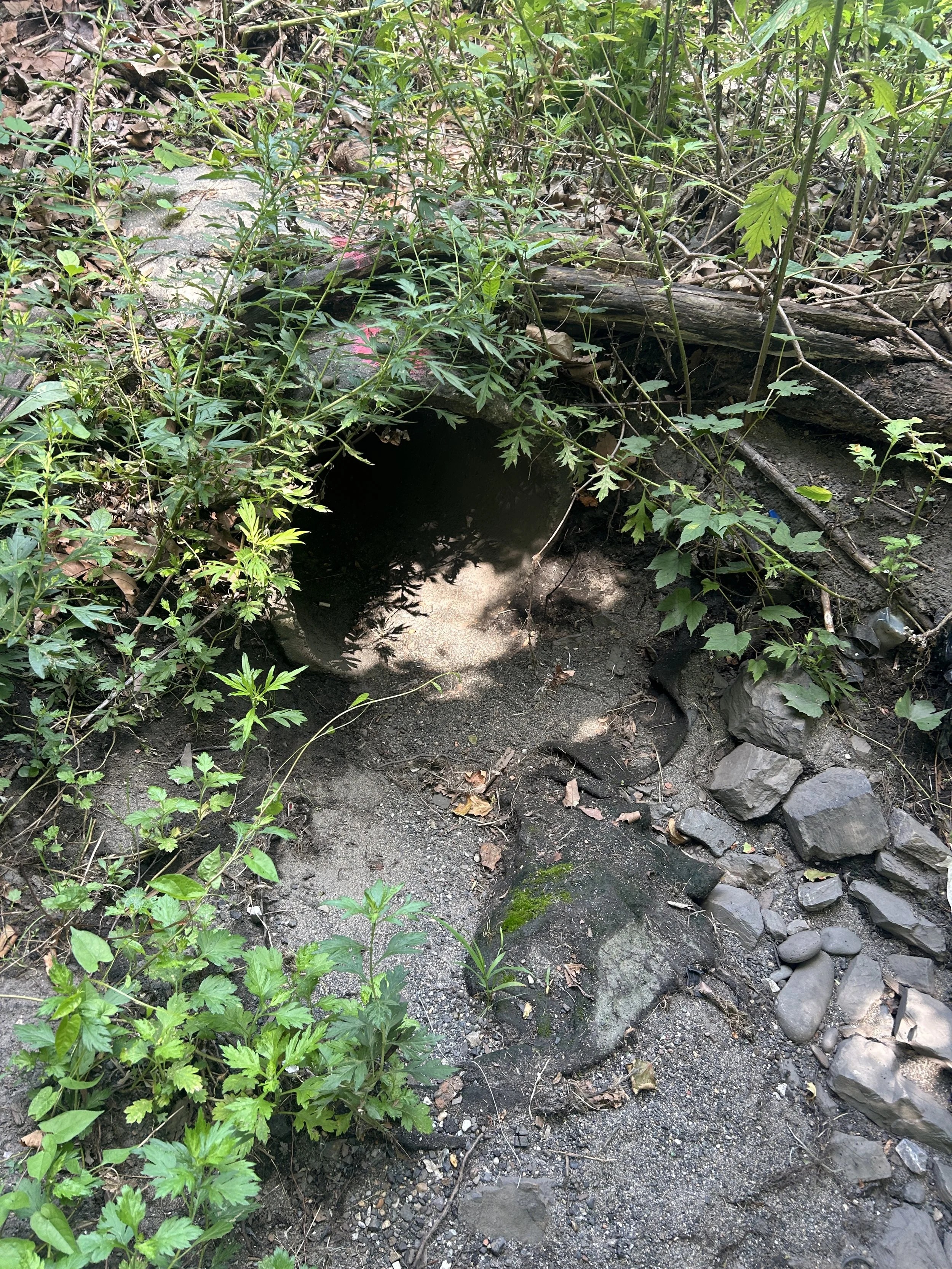

Community Engagement and Mission
Beyond data collection, the study aligns with Spearhead Project Earth's mission to empower communities through environmental stewardship. This is achieved by integrating scientific methods with grassroots education initiatives such as outdoor classrooms, informative signage, and hands-on public engagement. These efforts aim to foster community awareness and participation in environmental sustainability.
Expected Outcomes and Impact
Spearhead Project Earth’s staff intends to use the results to generate actionable insights for easy, immediate, and inexpensive remediation for Morrisville Borough. Additional goals include collaborating with local and state representatives to identify grants and other funding sources for improvements in managing stormwater pollution. Success metrics include the volume of intercepted waste, levels of community involvement, and the precision in tracing pollution sources upstream. The study will culminate in a replicable model for other municipalities and their waterways facing similar challenges, promoting broader, more positive sustainability practices.
Success will be defined by the volume of waste intercepted, community participation, and the clarity with which upstream sources can be identified and addressed, offering a replicable model for other urban waterways facing similar pollution challenges.

